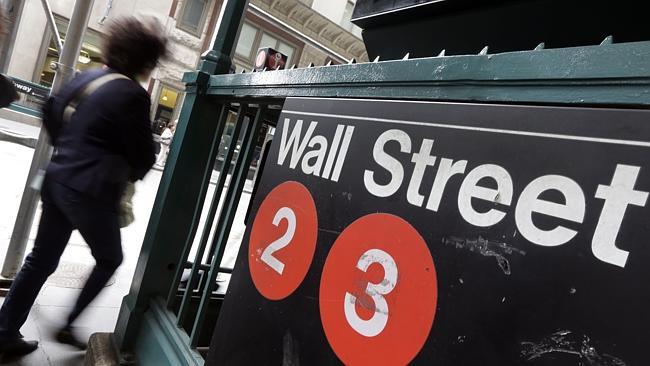Market carnage carries chilling message for us
THE European and American bond markets are delivering a chilling message. And if current trends continue, Australia is potentially a sitting duck.

THE European and American bond markets are delivering a chilling message to the world. And if current trends continue, Australia is potentially a sitting duck and deposit rates may go lower.
Nowhere is the chilling message starker than in Europe. I am indebted to Tim Haywood, investment manager of London-based large funds management group GAM for helping me understand what is happening.
There are 10 countries in Europe where if you buy bonds of up to two years’ currency, you gain a negative return. On maturity, the bonds are worth less than what you paid.
If you place your money in a bank you are charged a fee, instead of receiving interest. The negative yield countries include Germany, The Netherlands, Belgium, Ireland, Slovenia, Finland, France, Switzerland and Denmark. The “charge” can be up to almost 0.1 per cent.
Residents in those countries are forced to buy equities or property to gain a return, but this year the sharemarket is down, so money under the bed is showing the best returns, albeit carrying a security risk.
The European bond markets are telling us that Europe faces many years of little or no growth, with periodic recessions. There will be no inflation under this scenario. It’s a repeat of what happened in Japan.
Maybe that’s why Germany appears to have given up and is following the Greek way of life: introducing increased pensions for mothers, cutting back the retirement age to 63 years, establishing a high national minimum wage, and looking to mandate equal pay for men and women plus introduce an “anti-stress law” that is meant to protect employees from working too hard.
In the US, there are growing doubts in the bond market about the widely accepted scenario that interest rates are all set to rise.
When disappointing US retail growth figures came out on Wednesday, many big 10-year bond investors were underweight US bonds. They suddenly became scared that interest rates would not rise because of the sluggish economy. And the bond market sentiment has infected equities.
It also created a deep drama in the New York bond market because when the investors who were light on 10-year bonds began buying, it sent bond yields down and prices up. Another large investor had taken out derivatives, gambling that there would be little volatility. When bond prices began rising, the punting institutions panicked and began feverishly buying 10-year bonds to cover their position.
The combination sent the US bond interest rates spiralling down from 2.2 per cent to 1.86 per cent, a move not seen since the global financial crisis. Later the bond yield jumped back to 2.12 per cent, which is close to where they were trading last night.
In this environment, Australian interest rates look high. But for overseas investors, our rates carry a currency risk. If that currency risk moderated, we would see a flood of cash come out here, pushing our deposit and market rates down and house prices higher. The government might be forced to act on negative gearing.
Robert Gottliebsen is a columnist for Business Spectator. Visit businessspectator.com.au



